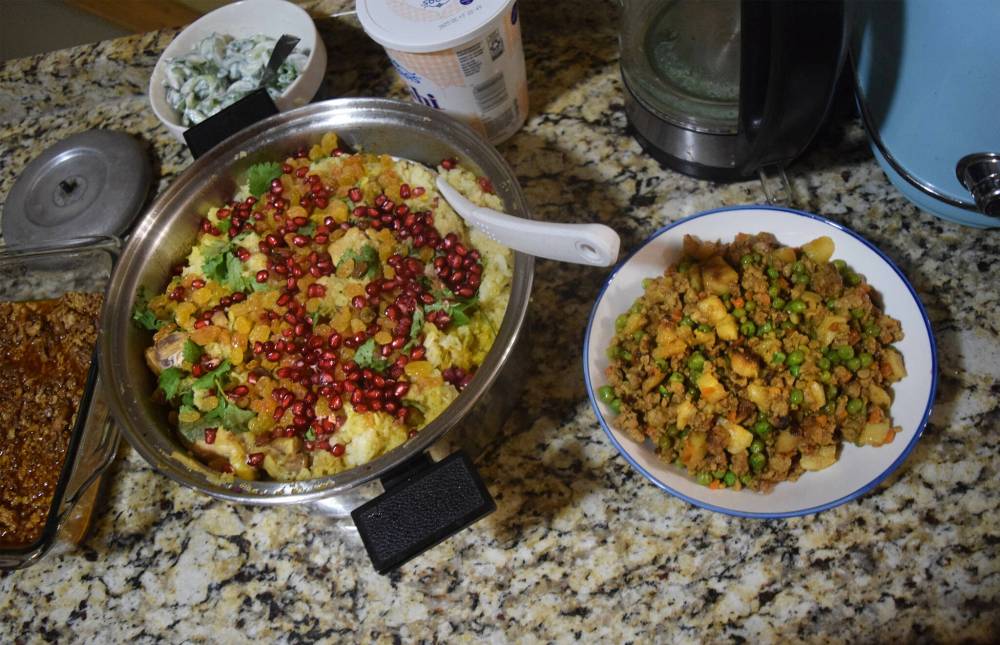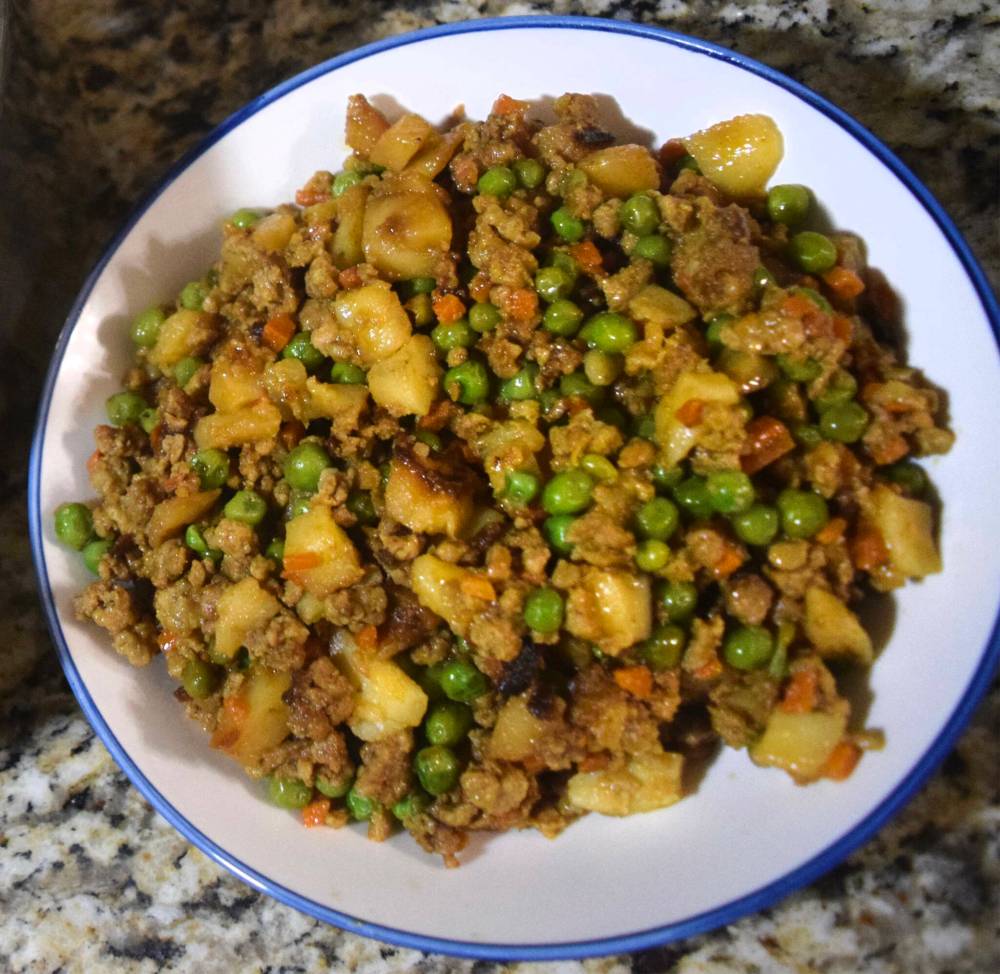Embracing loss and illumination for Deepavali festival of light
Advertisement
Read this article for free:
or
Already have an account? Log in here »
To continue reading, please subscribe:
Monthly Digital Subscription
$1 per week for 24 weeks*
- Enjoy unlimited reading on winnipegfreepress.com
- Read the E-Edition, our digital replica newspaper
- Access News Break, our award-winning app
- Play interactive puzzles
*Billed as $4.00 plus GST every four weeks. After 24 weeks, price increases to the regular rate of $19.00 plus GST every four weeks. Offer available to new and qualified returning subscribers only. Cancel any time.
Monthly Digital Subscription
$4.75/week*
- Enjoy unlimited reading on winnipegfreepress.com
- Read the E-Edition, our digital replica newspaper
- Access News Break, our award-winning app
- Play interactive puzzles
*Billed as $19 plus GST every four weeks. Cancel any time.
To continue reading, please subscribe:
Add Free Press access to your Brandon Sun subscription for only an additional
$1 for the first 4 weeks*
*Your next subscription payment will increase by $1.00 and you will be charged $16.99 plus GST for four weeks. After four weeks, your payment will increase to $23.99 plus GST every four weeks.
Read unlimited articles for free today:
or
Already have an account? Log in here »
There’s a folder in my Gmail inbox labelled “Amma’s Recipes,” to which I’ve assigned a special colour.
It contains more than 100 messages, almost all from my mother. She assigned a number to each recipe and included a brief explanation as to why she’s included it, before going into detailed measurements and methods.
There’s even a bullet-pointed notes section of tips, shortcuts and substitutions in case there was a difficulty in obtaining ingredients or if there were food allergies to consider.
She tried to think of everything, my mother.
I’ve avoided looking in that folder for more than 14 months because every message is addressed not just to me, but also to Arul, my younger — and only — brother, who died last year.
He’s replied to some of those messages, and I, still tangled in my grief, am scared to read them.
But it’s Deepavali, the Hindu festival of light, and my daughter asked me to cook specific dishes to mark the occasion.
A request so rare I had no choice but to set aside my fears and sift through the folder.
Growing up in Malaysia, Diwali — or Deepavali as the majority of ethnic Tamils who live on the Peninsula call it — was always about getting together to eat.
While I have never practised Hinduism, I grew up in a Hindu family and my childhood memories are of the days leading up to the event, watching my mother and her siblings preparing the Deepavali meal as my maternal grandmother, Ammachee, the boss of the kitchen, cast her eye over the proceedings.
In my large extended family, it seemed we always had a special dinner the night before, our green Formica-topped table laden with bowls of regular favourites as well as far more complicated preparations saved for special occasions.
In my mind’s eye, I can see my Ammachee filling up an extra plate and handing it to one of her children, who would place it in front of a picture of my dead grandfather.
At the time, I could not understand why she was serving him something he wouldn’t be able to eat, but now I know the practice, known as padaiyal, was for her more than it was for him.
By the time you read this, it will have been 444 days since Arul’s death.
Like most members of my family, my brother was fanatical about food.
He loved going out to eat, adored sharing his favourite foods and wouldn’t think twice about driving for hours whenever I went back to Malaysia to get me all the dishes I’d been craving.
He loved cooking for people, had inherited my mother’s innate kitchen skills and had trained to be a chef.
Spoiler: I have not inherited these skills. It’s something he would mercilessly tease me about on the rare occasions we would find ourselves preparing a meal together.
“You think you love cooking, but you don’t,” he’d joke, swiftly slicing and dicing while I hacked away at an onion.
He was right.
I’ve tried to convince myself otherwise, but what I really love doing is to stand in the kitchen and watch people cook.
He knew me better than anyone else.
Last weekend, I tried to cook my own Deepavali feast. It could be a chance for me to continue a tradition I had allowed to lapse, I thought.
I had grand plans. My feast would honour my roots and acknowledge my own experiences, and include my daughter’s requests. It would be marvellous.
It was not.
I prepped intensively, had multiple tabs open on my computer of recipes from that folder, picking out special dishes and ordering unusual ingredients.
Banishing everyone from the kitchen, I began slicing and dicing and pounding and grinding in an attempt to present the perfect celebratory meal.
AV KITCHING / FREE PRESS A Deepavali meal of basmati rice and kheema.
But nothing turned out the way I wanted: the rice was soggy instead of fluffy; the kheema was bland; and the chicken curry thick and gloopy from overcooked potatoes, which had disintegrated into the sauce.
The kitchen gods were against me, it seemed.
Later that evening, as my husband and I tidied up, I asked him what he thought of the meal.
“It was delicious,” he said tactfully, refusing to be drawn into detailed discussions despite my badgering.
Then, from downstairs in the basement, where my daughter was playing, a voice piped up.
“The rice was too sticky and lumpy,” she began, listing everything else that was wrong with the meal I had so carefully prepared.
There was nothing I could do but sigh. Somehow, it seemed fitting my meal was a mess.
The next day she asked me to feed her the Deepavali leftovers. She wanted to try it again.
So I did, feeding her in the same way my mother had fed us when we were younger, scooping up a little bit of everything for the perfect mouthful.
“Can I have some more? I think it tastes much better today,” she said.
And it did; the spices had merged and deepened, there was now a depth of flavour so sorely lacking from my grand feast.
It was by no means perfect, but far from the unmitigated disaster of the night before.
Perhaps all it needed was some time.
av.kitching@freepress.mb.ca
Recipe No 26: Kheema
SUPPLIED Kheema is a cherished family recipe.
- 450 g (1 lb) minced lamb, beef or a mix of both
- 150 g (5 oz) frozen peas
- 2 potatoes, diced to pea size
- 1 large carrot, diced to similar size
- 30-45 ml (2-3 tbsp) meat curry powder
- 5 ml (1 tsp) garam masala
- 5 ml (1 tsp) each of garlic and ginger paste
- 3 medium onions, finely chopped
- 1 stick cinnamon
- 5 cloves
- 1 star anise
- 1 sprig curry leaves (optional)
- Salt to taste
- Heat 30 ml (2 tbsp) oil and fry whole spices and curry leaves.
When fragrant, add onions and cook over medium heat.
Add the meat once the onions have softened.
Stir in the garlic and ginger paste and mix well to combine.
Cook 5-10 minutes, then add curry powder and stir thoroughly.
After 5 minutes, add diced potatoes and carrots.
Sprinkle a few splashes of water and stir well.
Cover and cook for 10-15 minutes until meat and veg are well cooked.
Add the peas and salt, stir through to combine, and cook 3-5 more minutes.
Lastly, add garam masala and stir well and cook a further 3 minutes.
Top with chopped coriander before serving.

AV Kitching is an arts and life writer at the Free Press. She has been a journalist for more than two decades and has worked across three continents writing about people, travel, food, and fashion. Read more about AV.
Every piece of reporting AV produces is reviewed by an editing team before it is posted online or published in print — part of the Free Press‘s tradition, since 1872, of producing reliable independent journalism. Read more about Free Press’s history and mandate, and learn how our newsroom operates.
Our newsroom depends on a growing audience of readers to power our journalism. If you are not a paid reader, please consider becoming a subscriber.
Our newsroom depends on its audience of readers to power our journalism. Thank you for your support.

